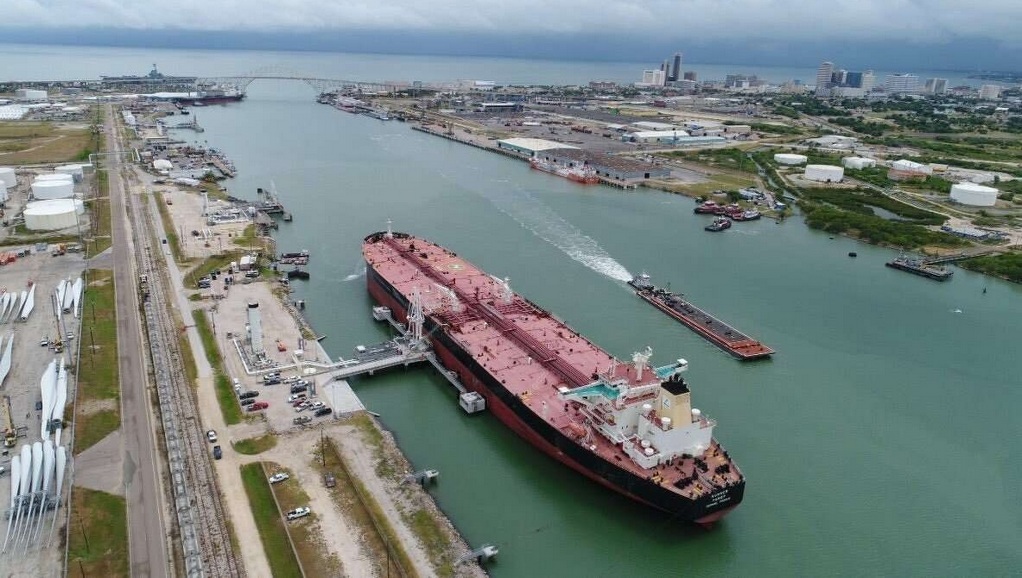The Port of Corpus Christi has been encouraged by the US Department of Energy (DOE) Office of Clean Energy Demonstration to submit a full application for its Horizons Clean Hydrogen Hub (HCH2) through the Regional Clean Hydrogen Hubs Program.
The port sees itself as the prime applicant for the HCH2, being the common denominator to each of the roughly two dozen clean hydrogen production projects in the proposed hub.
The HCH2 Concept Paper, submitted to the DOE in November 2022, names around 30 private sector team members as owners, developers and/or operators, off-takers, and end users of various hydrogen value chain projects and supporting infrastructure.
Repsol Hydrogen, Mitsubishi Corporation, Sempra Infrastructure, and Trafigura are some of the potential users and developers.
The Regional Clean Hydrogen Hubs program includes up to $7 billion to establish six to 10 regional clean hydrogen hubs across America. It is part of a larger $8 billion hydrogen hub program funded through the Bipartisan Infrastructure Law.
Existing operations around the Port of Corpus Christi already use hydrogen as part of the refining process. What is more, a number of other industries are expected to transition to hydrogen as a low-carbon alternative to natural gas to power their operations, the port added.
Furthermore, HCH2 projects will use, and add to, the 110 miles of existing hydrogen pipelines to move hydrogen through the region. The plan is to convert hydrogen to ammonia before transportation via rail or ship.
According to the port, HCH2 will connect large-scale clean hydrogen production in the West South-Central U.S. with in-region, extra-regional, and international end users by way of common carrier and connective infrastructure. It includes three waves of deployment, all under development now with staggered maturation, to supply existing and developing demand.
As informed, the project developers in the HCH2 are a combination of cornerstones of the energy marketplace. These include longstanding port customers as well as well-capitalized start-ups vetted by the Port.
The production, processing, delivery, storage, and end-use of clean hydrogen are crucial to DOE’s strategy for achieving Biden’s goal of a 100 percent clean electrical grid by 2035 and net-zero carbon emissions by 2050.
As part of its diversification plans, the port has engaged in initiatives related to hydrogen production and carbon capture utilization and sequestration (CCUS).
In September last year, the Port of Corpus Christi Authority (PPCA) and the Texas General Land Office signed a memorandum of understanding to co-develop a carbon dioxide (CO2) storage solution in the Coastal Bend in support of national decarbonization targets.
Such a solution would involve infrastructure to transport and permanently store CO2 captured by various industrial target sources in the greater Port of Corpus Christi area. Based on the findings of geological studies conducted by the University of Texas at Austin, the Texas Gulf Coast region is ideal for the injection and storage of pressurized CO2.
Furthermore, Apex Clean Energy, Ares, EPIC Midstream, and PPCA are looking into green hydrogen production, including a new pipeline and a green fuels hub at the port.
Under the plan, Apex would utilize its wind and solar projects currently in development in Texas to power facilities producing green hydrogen and derivative green fuels products. In addition, EPIC would consider leveraging its pipeline construction and operating expertise to accelerate the development of a new, dedicated green fuels pipeline. The project would tap into existing and new storage, processing, and export infrastructure sited on real estate owned by PCCA.
Tags: HCH2, Port Corpus Christi, US DOE



Recent Posts
Port of Brisbane Unveils Vision 2060 to Drive Smarter, Cleaner, and More Connected Future
Wärtsilä to Deliver Hybrid Propulsion Systems for Vertom Group’s New Low-Emission Vessels
Latvian port receives electric Konecranes Gottwald Mobile Harbor Crane
Sustainable Ocean Economy Vital for Human Development, Says UNDP at UN Ocean Conference
Green Hydrogen Costs in India Could Drop by 40%, Says IEEFA-JMK Report
Cavotec Secures €1.55 Million Shore Power Contract for Port of Antwerp-Bruges
APM Terminals and SANY Marine sign landmark agreement to accelerate decarbonisation
The Port of Gothenburg takes big step towards shore power connection for container and car/RoRo vessels